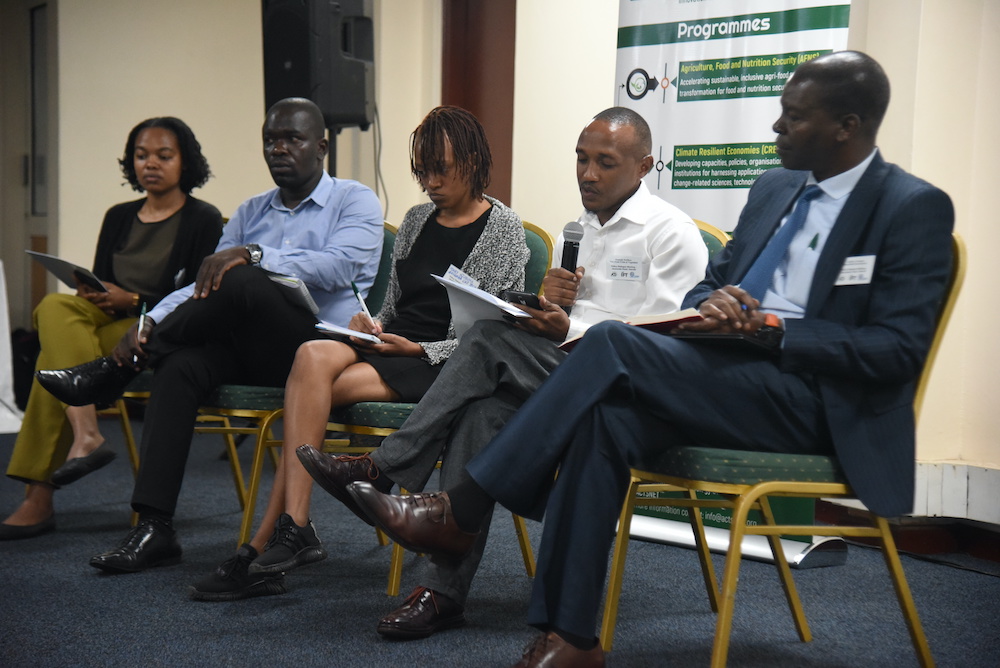Under the umbrella of the Agriculture, Food and Nutrition Security (AFNS) Programme at ACTS, the policy dialogue provided an opportunity for an enthralling discussion on strategies for creating an enabling policy environment for up-scaling solar dryers in Kenya.

A panel discussion during the policy dialogue on the potential of solar dryers to reduce post-harvest losses held in Nairobi, Kenya.
A cross-section of government officials, farmers, regulators, private sector, financial institutions and cooperatives converged in Nairobi to discuss the potential of solar dryers to reduce post-harvest losses (PHL), curb carbon emissions and unlock opportunities for dried food in Kenya.
Under the umbrella of the Agriculture, Food and Nutrition Security (AFNS) programme at ACTS, the occasion witnessed a thrilling convergence of minds and ideas on strategies for creating an enabling policy environment to support up-scaling of solar dryers in Kenya.
This comes in comes in the backdrop of a burgeoning global population with the attendant increase in demand for food. In this context, mitigating post-harvest losses not only ensure food security but also paves way for economic prosperity in communities reliant on agriculture. Meanwhile, with traditional food drying methods heavily reliant on fossil fuels, the carbon footprint associated with food preservation is undeniable.
The dialogue - opportunities and Challenges for Enhancing the Market for Quality, Low-cost Solar Drying Technology in Kenya - is part of a project implemented by ACTS, KIRDI and UNEP, funded by the Institute of Food Technologists (IFT) through the Seeding the Future Global Food System Challenge.
ACTS expects to deploy 500 affordable quality solar dryers across Kenya over the next 5 years.
Speaking during the event, Dr. Catherine Kilelu, the head of AFNS programme, noted that the technology is key for enhancing food and nutrition security in Kenya.
“To benefit from these innovations, there is urgent need to drive wide-scale market adoption as a strategy to scale impact of these benefits," - Dr. Kilelu, ACTS.
And whereas the potential for solar dryers is huge, several challenges hinder their adoption: limited knowledge/ awareness related to technology options, financial constraints, and sub-optimal performance of the technologies in the market due to lack of quality standards.
"When you look on the drying rate, solar drying is better and has several advantages including faster drying rate, better protection of products; it reduces the risk of prolonged drying and product spoilage thus improving product quality," - Dr. Fred Ogutu, KIRDI.

